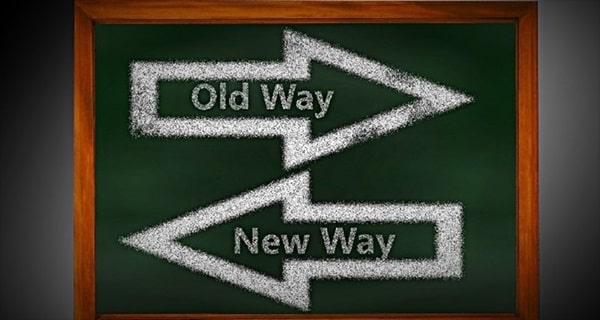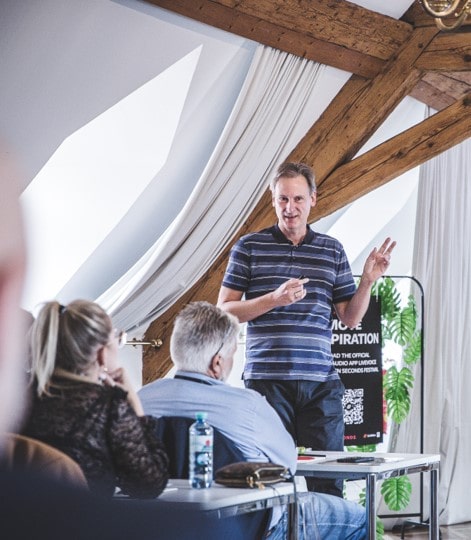Unconscious bias trainings - Sense, criticism and a new approach
Unconscious bias trainings the most popular measure used by companies to address unconscious thinking patterns, thinking errors or biases.
Very often, it takes place in connection with the topic of diversity and inclusion.
In the meantime, there are not only positive voices about it, the trainings are sometimes vehemently criticised.
Content of unconscious bias trainings

Organisations want to change and develop new behaviours.
A traditional tool in many companies is to hold lectures or trainings, often limited to managers.
Unconscious bias trainings are often centrally organised, with a standard agenda and possibly mandatory. The most common context is usually diversity and inclusion and the negative effect of unconscious biases, stereotypes and prejudices.
Basically, such trainings are meant to create more awareness, to deal with different biases and to achieve behavioural change.
The question arises as to the usefulness of these trainings and how de-biasing differs from them.
Diversity and inclusion
Creating more diversity and inclusion (D&I) is an important goal. Most unconscious bias trainings take place in this context. Sometimes they are equated with the expectation that training means more diversity and inclusion.
What should not be forgotten here: Biases are not only important in the topic, but also for this topic. They can have an impact on the design and definition of D&I programmes as well as on the handling of the topic and its implementation.
The challenge here is not only to deal with stereotypes and prejudices in terms of content, but at the same time not to create new ones in the course of the programme.
What can go wrong
Unconscious biases training has often been implemented (and previously sold) as a measure for more diversity and inclusion, starting from the Anglo-American field.
To achieve this goal through a training measure is overly ambitious. In many cases it has not been achieved. In England, for example, it was decided in December 2020 to no longer provide unconscious bias training for civil servants.
Since then, there has been a lively discussion between the sides pro and contra unconscious bias training.
The clear statement of Mind your business is:
One cannot expect a change in behaviour through a single training measure!
This is one of the reasons why the de-biasing concept is much broader and more modular.
Trainings, workshops & webinars are at the beginning of changes. They give impulses, create experiences with one's own biases and thus contribute to raising awareness of this important issue.
Effective changes, however, need more and must be surrounded by a more comprehensive package of measures. This must be oriented towards concrete goals, copy / paste does not work!
This is an essential point that distinguishes de-biasing by Mind your business from other offers.
Criticism of Unconscious Bias Training
Increasing diversity and inclusion is a common claim of unconscious bias training. The main criticism is that this goal is not achieved. According to Joelle Emerson, "Critics of such training contend that it doesn't visibly move the needle on diversity numbers, and can even backfire."
The essence of various studies pro and con is that it depends very much on the individual training. If this includes certain elements, positive effects can also be expected in the area of diversity and inclusion (even if not a complete, rapid change of structures that have existed for years).
Mind your business puts workshops, lectures and webinars in a broader context and emphasises the importance of a change process. The criticism of "classic" unconscious bias trainings is often justified and gives valuable clues for a more effective approach.
More in-depth articles with concrete recommendations in this context include:
- Joelle Emerson: "Don't Give Up on Unconscious Bias Training - Make It Better", HBR April 2017.
- Glenn Llopis: "Unconscious Bias Training Perpetuates The Problems America Strives To Fix", Forbes October 2017
A new approach with de-biasing
The criticism of unconscious bias trainings is justified and addresses valid points.
Mind your business workshops and webinars differ from "classic" unconscious bias trainings in several ways.
- Scope
- More breadth instead of a very frequent focus on recruitment, promotion or equal treatment
- The practical system of unconscious biases is action-oriented, the concrete topics are easily derived from it
- Approach & methodology
- Focus on practical implementation instead of psychological theory - this makes it easier to transfer to everyday life
- Interactive workshop with varied gathering of experiences instead of frontal training
- Anchoring
- Concrete measures of all participants as a goal including implementation plans
- Connection to further de-biasing measures and anchoring of the measures in the change process
Another difference concerns language - the aim of dealing with unconscious influencing factors is to reduce or ideally eliminate their effects. This corresponds to the definition of de-biasing, which is why this term is used for the Mind your business formats.
Unconscious bias trainings often focus more on the cause, the bias itself, and less on concrete and practical implementation in an organisation. Why? They are usually not individualised, but standard trainings.
Mind your business is also different in this respect and always takes the concrete context into account, for example in the impulse series or functional de-biasing formats.
Feel free to contact me to discuss your suitable concept!
You will also find that there are few publicly bookable events where you can deal with Unconscious Biases - especially outside the topic of diversity and inclusion.
One of the aims of Mind your business is to create more awareness of unconscious biases. Therefore, there are regular publicly bookable introductory lectures or online short workshops - free of charge or at low cost.

Photo credits: Fifteen Seconds | Christine Qiu
De-biasing instruments and solutions
Here you will find further information on all instruments and solutions - for you, for your team and for your organisation.
- Key notes & impulse lectures
- Impulse series
- Free information lectures
- Workshop formats
- Business Coaching
- Business Sparring
- Business Consulting
